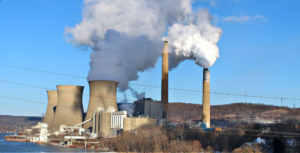
Who determines whether we have clean air or not? As members of the public, do we hold a responsibility to ourselves and each other to ask for clean air? On the other hand, if we don’t ask for clean air, should we be surprised to find that our air is considered dangerous to our health? Whether we ask for clean air or just expect it, one thing is for sure: most Pennsylvanians want their air to be safe, clean air. Additionally, health professionals agree and have sounded the alarm about the dangers of high levels of particulate matter in our air. Unfortunately, many of us in Southwestern PA are accustomed to air quality alerts for unhealthy levels of particulate matter.
Below, we look at the asks from community members as well as recommendations made by the state government in terms of our air quality. This breakdown is then compared to what our legislators have either done or not done in response.
Pennsylvanians Are Asking for a Change
In a new study conducted by the Global Strategy Group (“Study”), a diverse group of people from both rural and urban areas as well as democrats, republicans, and independent people were surveyed. The findings were that a substantial majority from each group support regulations limiting carbon emissions from power plants. The report also reflects that most Pennsylvanians support lawmakers who also support action which would combat climate change.
During the winter of 2020/2021, the Department of Environmental Protection (“DEP”) held an open comment period that lasted 69 days where they received comments on the proposed Regional Greenhouse Gas Initiative or “RGGI.” During this time, the DEP received over 14,000 comments. The makeup of these comments came from community groups, labor unions, industry, academia, students, and those in the medical community, just to name a few. Over 90% of these comments favored the state implementing some type of carbon capping program. In addition, the comments touted the benefits to human health (improved air quality), a way to generate funds for transitioning communities in the state, and that it would allow for the state to invest in new job opportunities.
Then there are the individual asks and pleas for clean air. There have been dozens, if not hundreds of letters to the editor and op-eds that explain the dire situation that our families face every day living here in Southwest Pennsylvania and the need to sustain our job market. Some of these letters outline the duty that our elected officials agreed to uphold: to defend our state’s Constitution, which explicitly states that we as a people have a right to clean air.
Pennsylvania State Agencies are Also Saying There Needs to be a Change
On July 9, 2008, the Pennsylvania General Assembly created the Pennsylvania Climate Change Act (“PCCA”). This bipartisan-supported Act requires the DEP to develop a Climate Change Action Plan that is updated every three years. This report details strategies for both adapting to climate change impacts and strategies for addressing greenhouse gas emissions.
The Action Plan has regularly highlighted that climate change is an immediate economic, environmental, and public health threat. Additionally, it points out that Pennsylvania is the third-largest energy producing state, third-largest coal producing state, and third-largest greenhouse gas emitter in the nation. The most recent Action Plan points out almost 20 climate mitigation and adaptation strategies (see pages 17-18) along with 100 actions to implement these procedures.
Additionally, the Pennsylvania Climate Impacts Assessment 2021 report is a comprehensive look at climate change across the Commonwealth. It projects an expected increase of almost 6 degrees Fahrenheit by mid-century. This means, on average, the state will see nearly 40 days a year that reach over 90 degrees. The result is an increased demand for electricity, which directly links to increased demand for fossil fuels to cool people’s homes. Thus, the cycle is repetitive.
What Has Been Done So Far?
The findings of the PCCA, coupled with the data gathered from Global Strategy’s study, would lead many to think that our legislators are in step with their constituents’ demands and the recommendations from the state agencies. Yet, the General Assembly has failed to act on these recommendations. They have yet to draft a single bill that addresses the issue of limiting air pollution.
Even though the General Assembly has stagnated in limiting carbon pollution, the Pennsylvania Department of Environmental Protection (“DEP”) has not. At the direction of Gov. Wolf, the DEP is currently drafting a carbon pollution cap and invest rulemaking. This program is known as the Regional Greenhouse Gas Initiative or “RGGI.”
RGGI is not a perfect program. Yet, the goals of RGGI are to limit and reduce carbon pollution from fossil fuel power plants within the Commonwealth while generating funds that can be invested in green energy and job opportunities in transitioning communities. The goals of RGGI fall in line with what almost 80% of those living in Pennsylvania are asking for. Other than RGGI, no other carbon reduction programs are being discussed in the state.
Instead of aiding the DEP in drafting the RGGI rule, the Senate has introduced Senate Bill (“SB”) 119. SB 119 would change the statutory authority of who effectively controls air pollution in our state. Presently, the DEP has the authority (and the expertise) under the Pennsylvania Air Pollution Control Act to develop a rulemaking for greenhouse gas emissions. Yet, SB 119 would remove that authority and instead require any policy that affects carbon pollution to be authorized first by the General Assembly. Additionally, the bill has no requirement for the General Assembly to even consider such a policy if submitted for consideration, allowing for a legislative veto through inaction.
Again, RGGI is not perfect as it is written today. However, it is the only proposed program that comes close to meeting the demand of the overwhelming majority of the state’s population as well as interested environmental agencies. Unfortunately, instead of listening to the asks of the people, our elected officials are impeding the only proposed program that would reduce carbon pollution in our state.
Our elected officials are supposed to be the voice of the people, to hear our asks and deliver on them. If they do not think that the current RGGI program is suitable for the state, they should propose a better program: A program that could help our coal communities thrive even as coal declines, and to transition away from being dependent on a few extractive industries to having a widely diversified economy that provides a quality of life that many people find attractive; one that works toward meeting Pennsylvanians’ demand and constitutionally-protected right to have clean air.
SB 119 isn’t an alternative solution. It ignores the expertise of DEP staff and seeks to usurp DEP’s authority to implement and enforce Pennsylvania’s air quality laws, and it again signals just how disinterested some members of the legislature are in improving our air quality. SB 119 doesn’t even mandate that the legislature review and decide on a proposal. They can simply toss it to the side and ignore it. Under SB 119 inaction is an action which allows politicians to avoid accountability and “hot” issues, and perhaps protect the special interests that support their campaigns.

